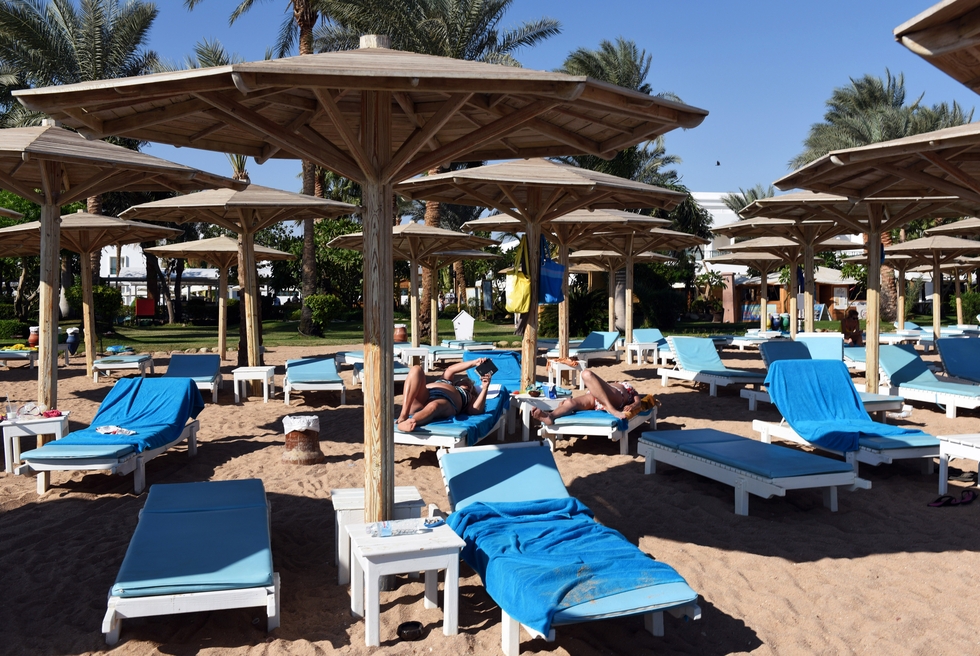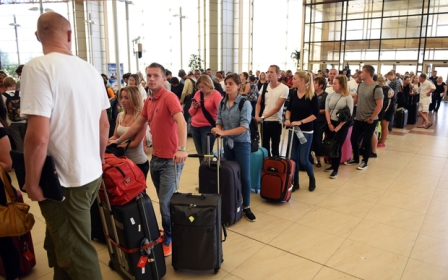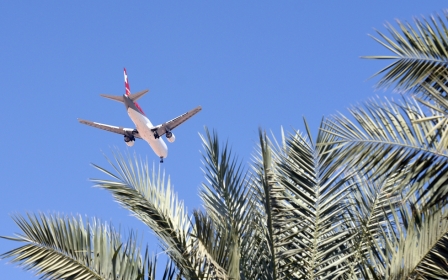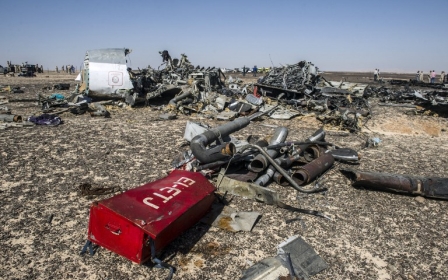Egyptian tour guides facing disaster after Russian air crash

CAIRO - Egypt’s main stock markets has suffered sharp dips in recent days in the wake of the Russian air disaster over Sinai on 31 October, which has delivered a body blow to the country's vital tourism sector.
Meanwhile, tour guides are reporting a dramatic fall in the number of tourists coming to the country’s main resorts, with nine out of 10 now said to be out of work.
“The situation is very, very bad for tour guides,” an official in the Tourism Guides Syndicate said. “Every time there seems to be hope, a catastrophe takes place.”
There are approximately 17,000 tour guides in Egypt and only 10 percent of them are working, he added. “The rest are unemployed… and in tourism there are no stable incomes,” he said, adding that these workers have had no financial support for themselves and their families over the past five years.
“The syndicate doesn’t have the financial means to support them…If there are tourists, there is work. If there are no tourists, there is no work.”
Mohamed Al-Azmerly, who has been working as a guide since 1995, said that the problem is also one of governance and management. He expressed dismay at both the Ministry of Tourism and the Tourism Guides Syndicate.
“No one noticed before [the 25 January revolution] because there was work, there were so many tourists coming in, that tourism just held itself together,” Al-Azmerly said, referring to the corrupt management of these institutions. “Because there is no work now, and the spotlight is on them, the corruption has become extremely obvious.”
For example, Al-Azmerly said, people who have nothing to do with tourism are appointed to the tourism ministerial post, “and they know nothing… they have no experience.” He added: “They travel abroad to go have fun and waste our money, claiming that they are working to attract tourists.”
He claimed that this has been the case since the days of Gamal and Alaa Mubarak who assigned Zuheir Garana, jailed in 2011 for corruption before later being released, to be the minister of tourism.
Russian tourists go home
One of the dwindling backbones of Egypt’s tourism industry had been Russian tourists. “The guides for Russian tourists were of the few that were doing okay,” according to the syndicate official.
That has changed since the crash of a Russian airbus A321 carrying 224 passengers on 31 October. Since then suspicions that a bomb brought down the airliner, killing all on board, as it flew out of Sharm el-Sheikh airport, have seen all flights to and from Russia halted, as well as those from several major western European countries.
“We have so many problems it makes sense that anyone would leave the country… Egyptians themselves are trying to leave the country,” Al-Azmerly said.
He went on to explain how petty acts of corruption also blight the everyday work of tour guides.
“The tourism police are supposed to be there to help us, but they pose the biggest problem, and they know no one can tell them anything,” he said. “They delay buses, they stare at the female tourists in disgusting and inappropriate ways, and they are always waiting for bribes.”
“Before people would come in the millions… now the number is in the thousands,” Al-Azmerly said, adding that five years ago guides had so many files that they had the option of choosing who to work with, but now a guide is lucky if he gets one file in two or three months.
The people who were still loyally returning to Egypt were the ones that were used to coming here and were interested in sitting on the beach, swimming and enjoying life on the resorts, he said. “Tourism is very centralised in Hurghada and Luxor … even Sharm didn’t have that many tourists.”
Many guides have left the tourism industry altogether and have turned to teaching or translation work, using their language skills acquired in tourism, Al-Azmerly said. “Our work as guides entails oral teaching anyway.”
Disaster strikes
On 31 October, an Airbus A321 crashed shortly after take-off from Sharm el-Shiekh. The crash killed 224 passengers and crew members. Earlier in September, Egyptian security forces killed approximately eight Mexican tourists in the Western Desert, allegedly mistaking them for terrorists.
Meanwhile, the Egyptian Foreign Ministry said on Wednesday that it approves American participation in investigations on the plane crash.
Russia, the US and the UK suspect that a bomb exploded on board the plane and caused the crash while Egypt maintains there is still no clear evidence. The self-proclaimed Islamic State branch in Sinai claimed responsibility for the attack.
Approximately three million Russian tourists a year come to Egypt and were the number one source of tourists for the country. This makes the Sharm el-Shiekh plane crash “the worst catastrophe” for the tourism industry in the country, officials said.
Russia Today, while it had earlier reported that it was unlikely that the plane crash would affect Russian tourists’ choice of Egypt, more recently reported that Crimea “wants to replace Egypt as the tourism hotspot”.
Approximately 80,000 Russian tourists still in Egypt have been set to leave from Sharm el-Sheikh and Hurghada since the Russian plane crash, Oleg Safonov, head of Russia’s tourism agency, told RT.
Attempts to reach a Ministry of Tourism spokesperson over the phone were unsuccessful.
According to the state-owned Al-Ahram Arabic newspaper, Russian and British tourists constitute 70 percent of Egypt’s tourist influx. The newspaper quoted Mohamed Youssef, an advisor to the former Minister of Tourism, who stated that, the plane crash is “a severe blow” to Egypt’s tourism.
Many countries now discourage their citizens from coming to Egypt as a holiday destination. Before the political turmoil of the past five years, tourists came from France, Belgium, Poland, Finland, India, China and Sri Lanka. “Now these nationalities barely come,” Al-Azmerly said.
New MEE newsletter: Jerusalem Dispatch
Sign up to get the latest insights and analysis on Israel-Palestine, alongside Turkey Unpacked and other MEE newsletters
Middle East Eye delivers independent and unrivalled coverage and analysis of the Middle East, North Africa and beyond. To learn more about republishing this content and the associated fees, please fill out this form. More about MEE can be found here.




